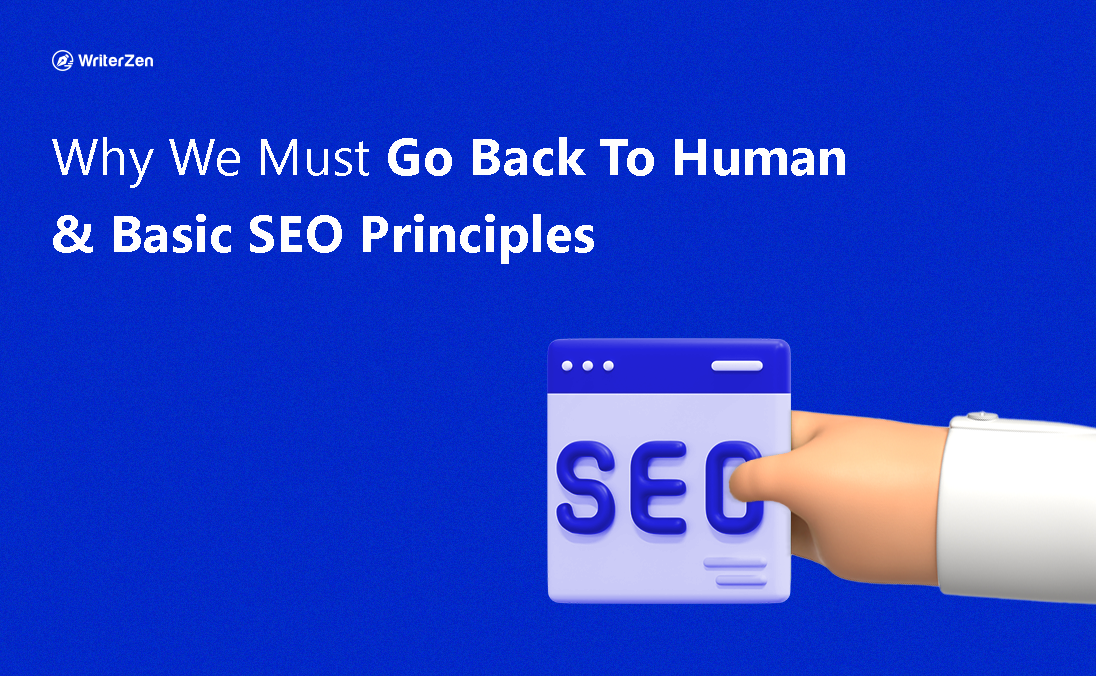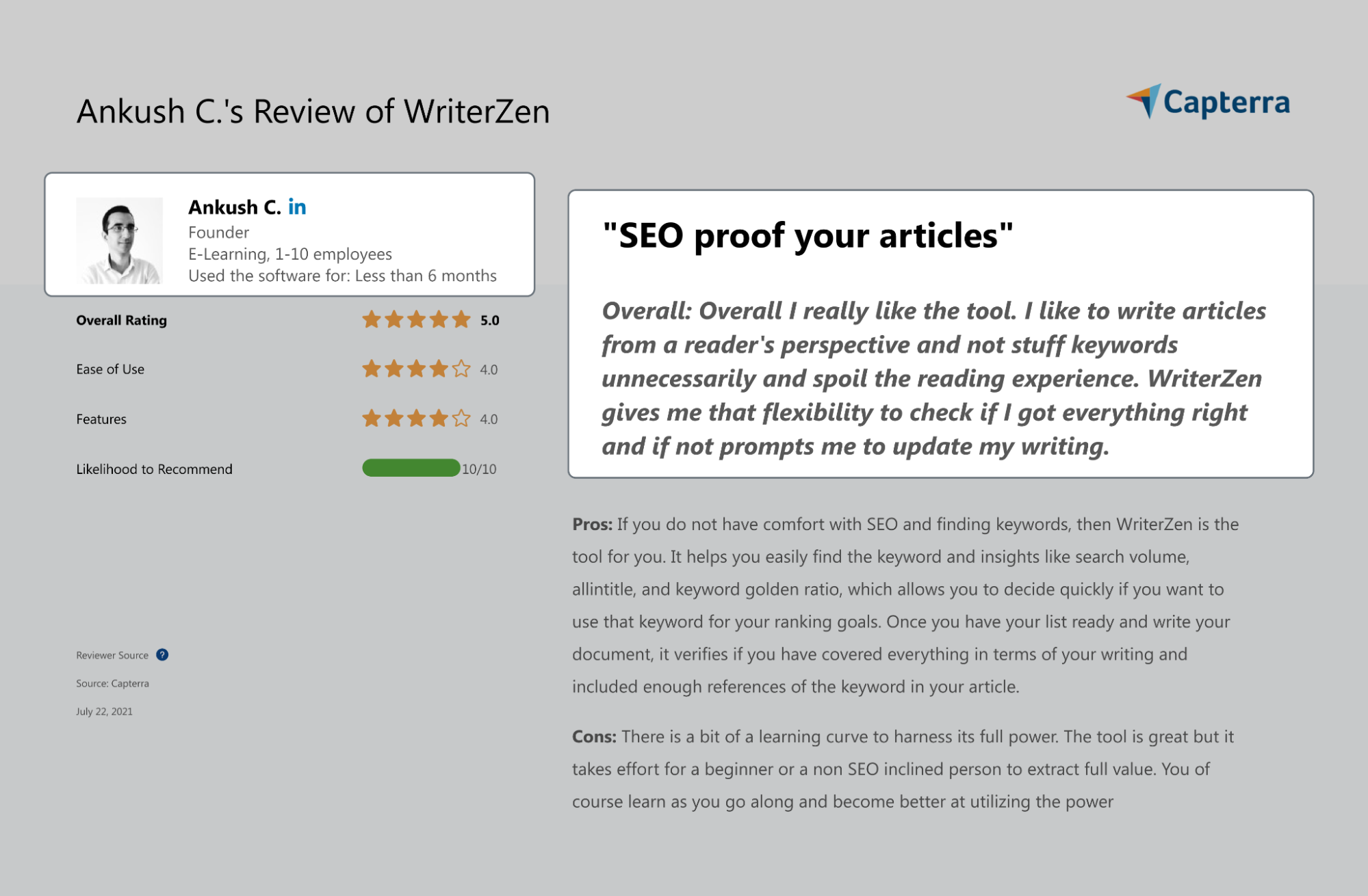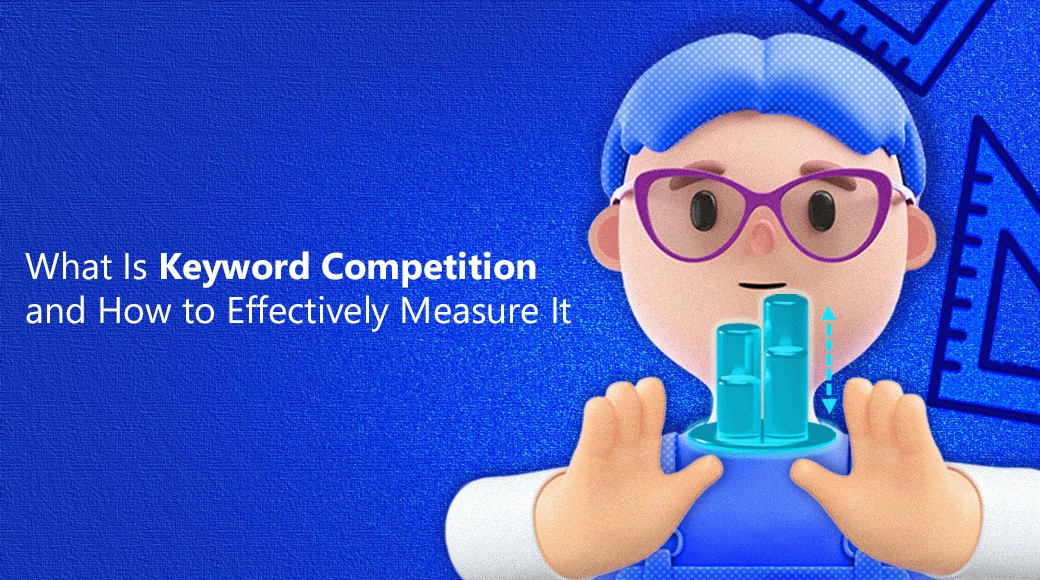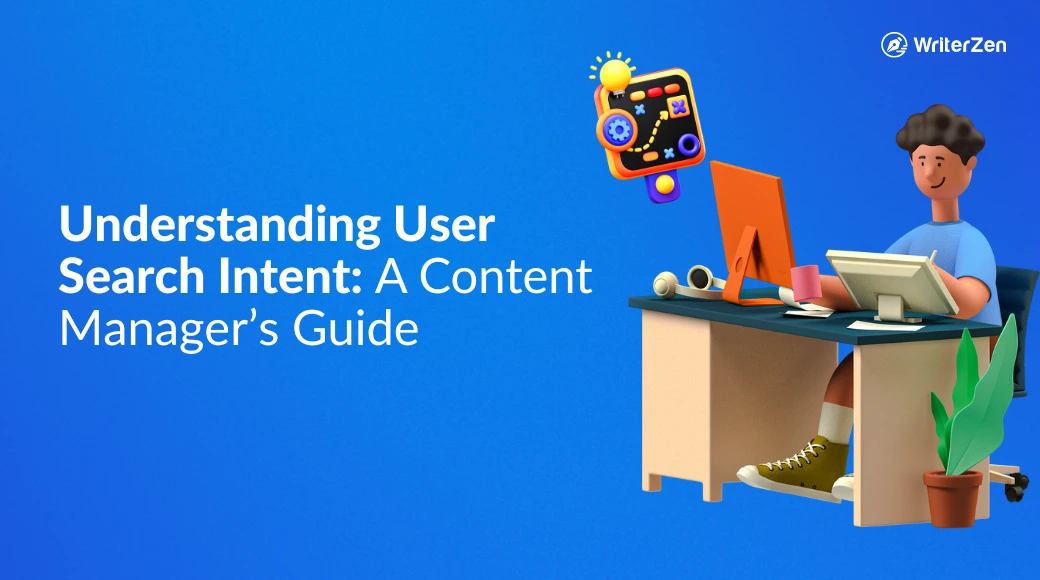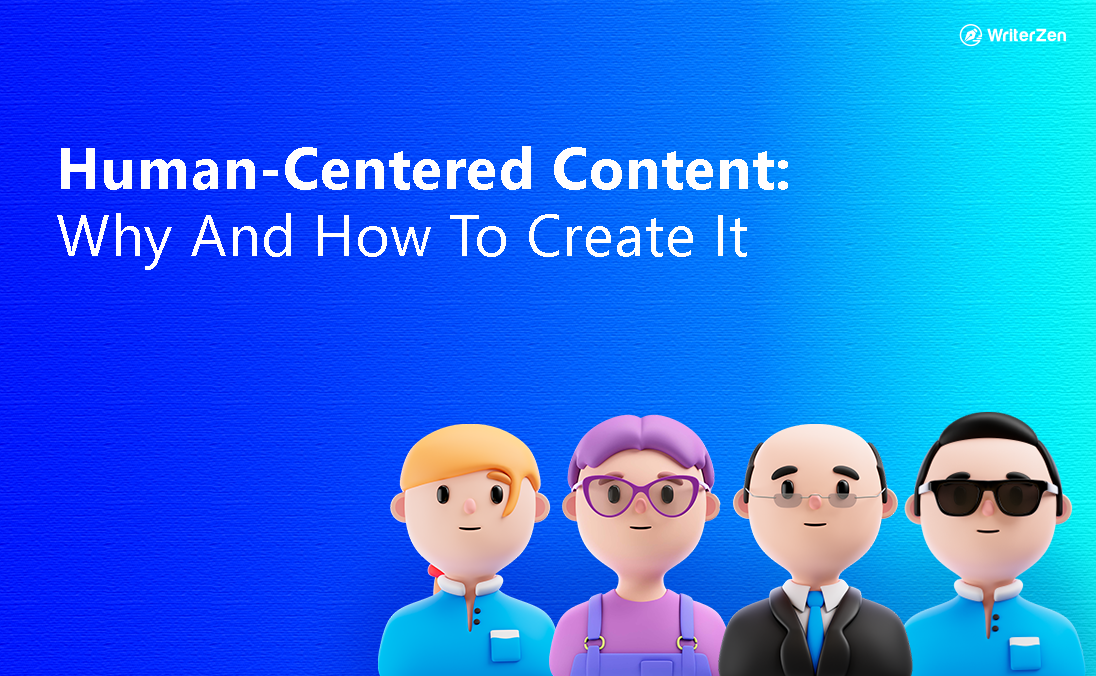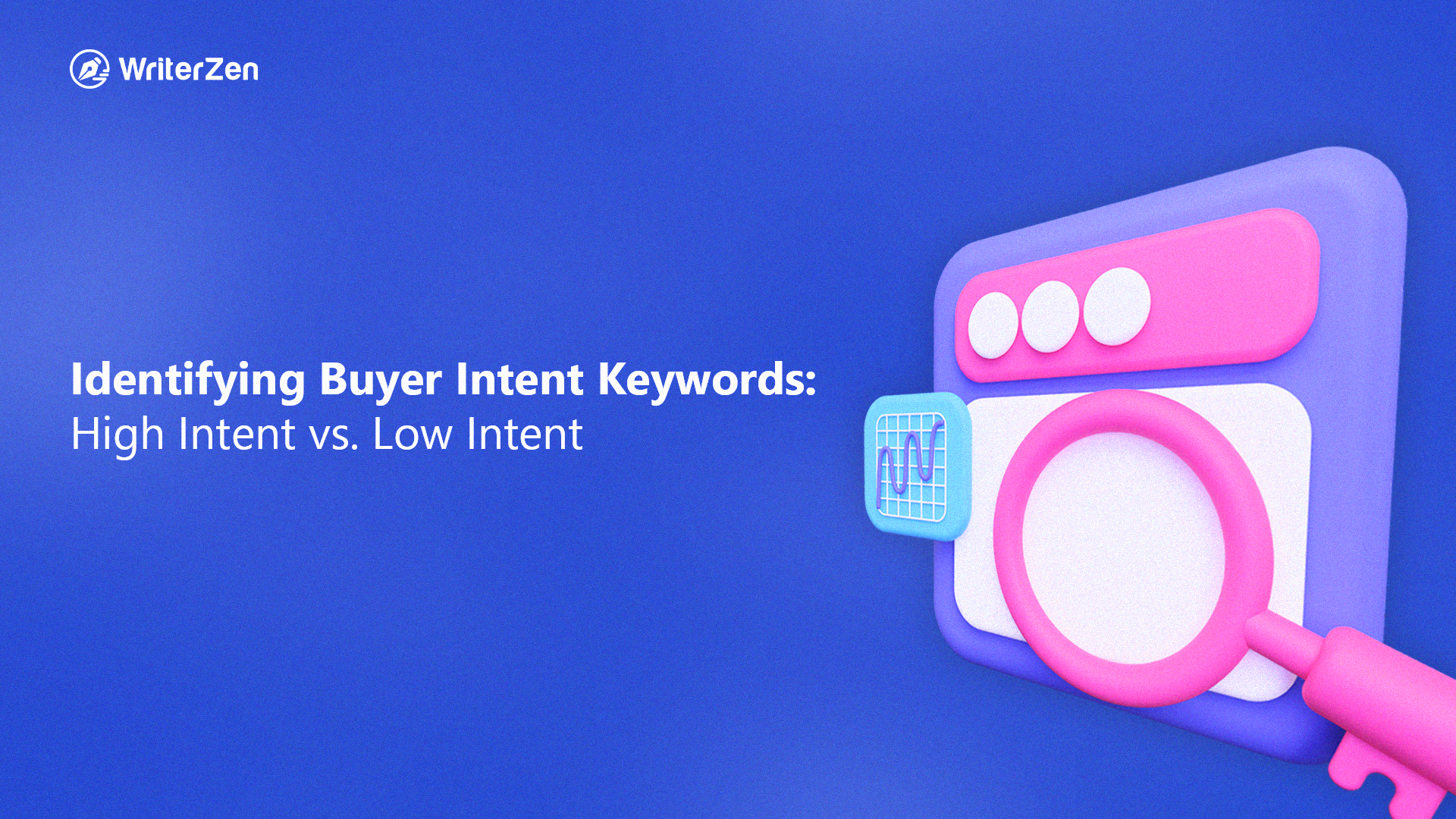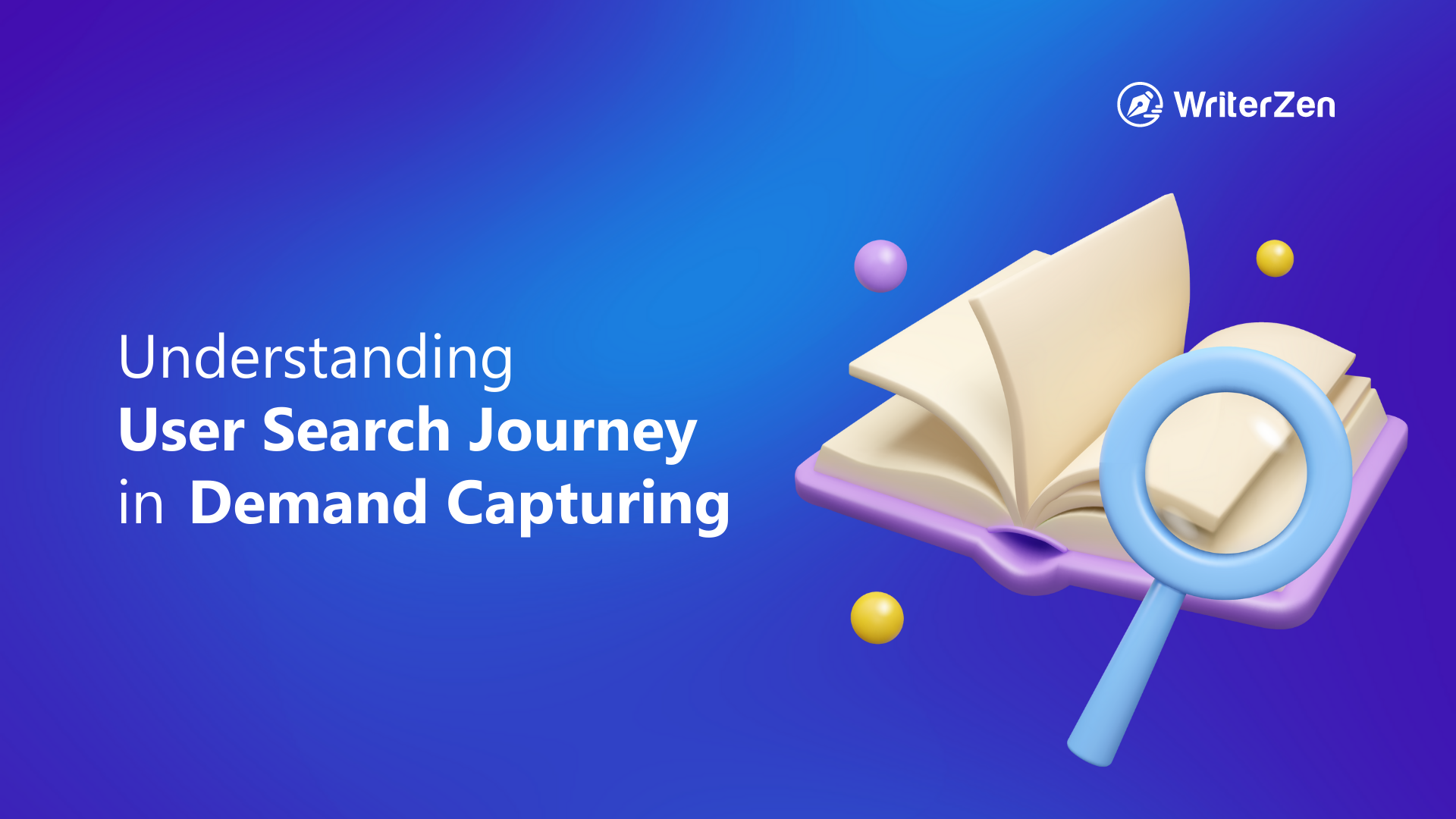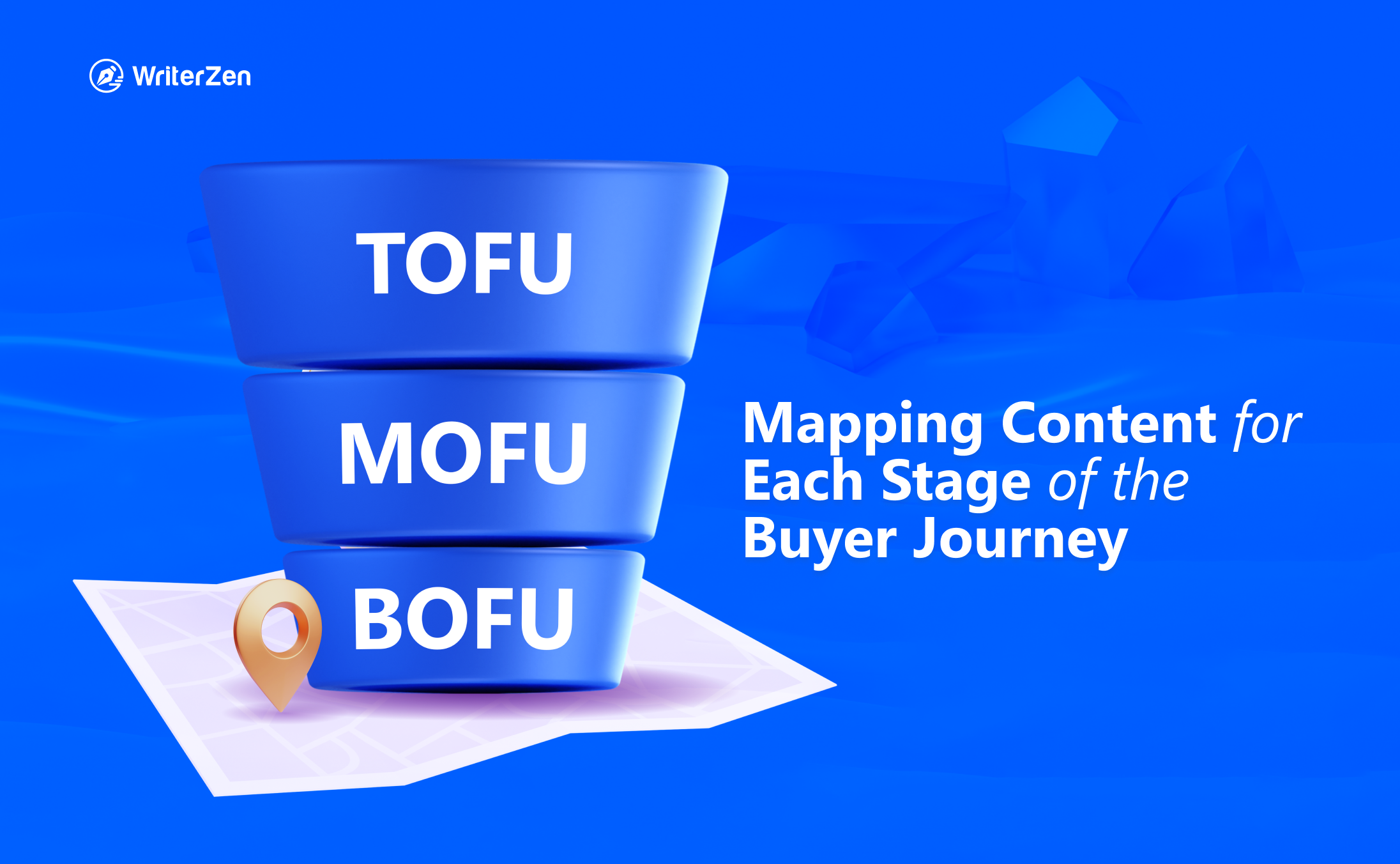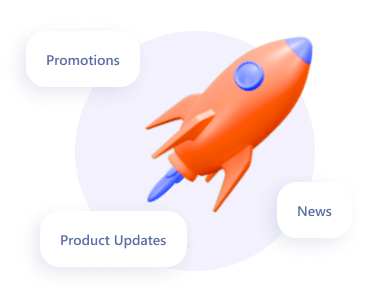It’s a regular Monday morning, and all seems right in the content SEO world.
By ‘right,’ we mean…
Content teams are releasing new content. SEO specialists are devising tactics to outrank each other. Backlink beggars are spamming blog owners’ emails. Content farms are regurgitating ranking articles. Nothing new.
Then it happens.
A Google update sends SEO folks into a frenzy and disrupts this seemingly ‘normal’ day.
Suddenly, site(s) get penalized for black hat SEO tactics. Organic traffic tanks or drops off the cliff. Revenue targets diffuse into thin air.
Yes, a Google update is a big deal; after all, it owns the lion’s share of the search engine market, at 83,84%. But your brand doesn’t have to be negatively impacted each time the search giant updates its algorithms – something they do so often at will.
Why SEOs Must Go Back To Human & Basics
Google’s updates increase as the search engine grows smarter.
In 2020, there were 4500 such updates. Granted, most are minor, but the volume of the major updates is still significant. For instance, in 2021, there were 14 major updates, including
-
Google spam update
-
Broad core update
-
Local search update
-
Page title rewrites.
Trying to keep up with all of them is exhausting and, frankly, unnecessary. Bar from a few crucial ones like Hummingbird, Mobilegeddon, or RankBrain, you don’t need to be a devout Google follower to rank blog posts.
And that's if you stick to basic SEO concepts and put humans first when creating content.
As Aleksandra Stefanović, Head of SEO at Play Media, said:
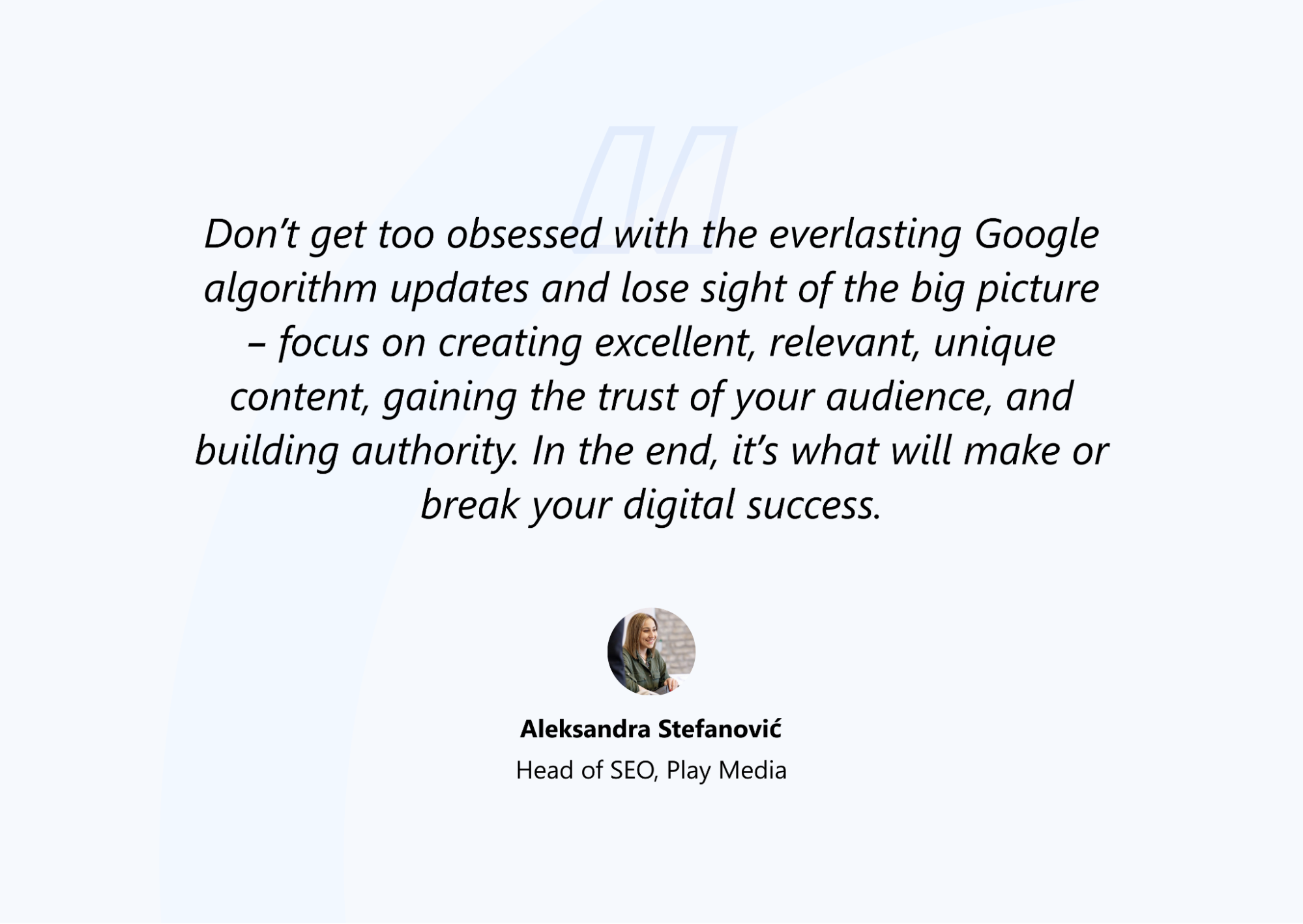
The problem with obsessing over Google and its updates is that you alienate your target audience, which is a recipe for disaster.
Secondly, how do you earn Google’s trust?
Let’s hear it from the horse’s mouth:
"Website owners who spend their energies upholding the spirit of the basic principles will provide a much better user experience and subsequently enjoy better ranking than those who spend their time looking for loopholes they can exploit."
In other words, you have a better chance of increasing Google’s trust and enjoying its rewards if you provide value for searchers instead of chasing after the algorithm.
Therefore, to thrive in the digital world, content marketers must first create human-centered content, then incorporate principal SEO tactics, which WriterZen can help you with.
Let’s see how to do these two below.
How To Go Back To Human
In August 2022, Google released the ‘Helpful Content Update.’
In their words: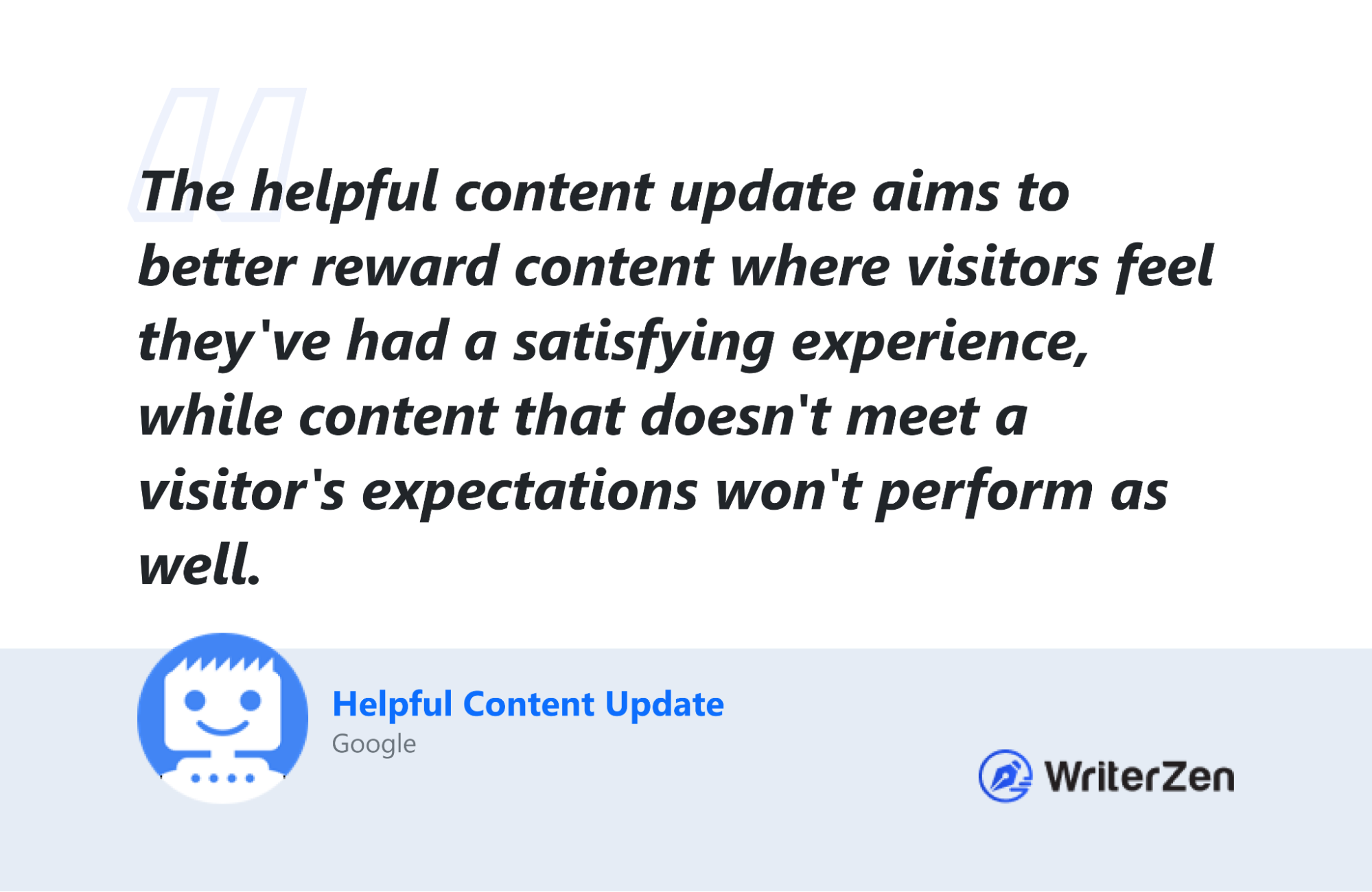
Simply put, create people-first content, or be penalized. According to Google, the questions below differentiate People-First content from Search Engines-First content
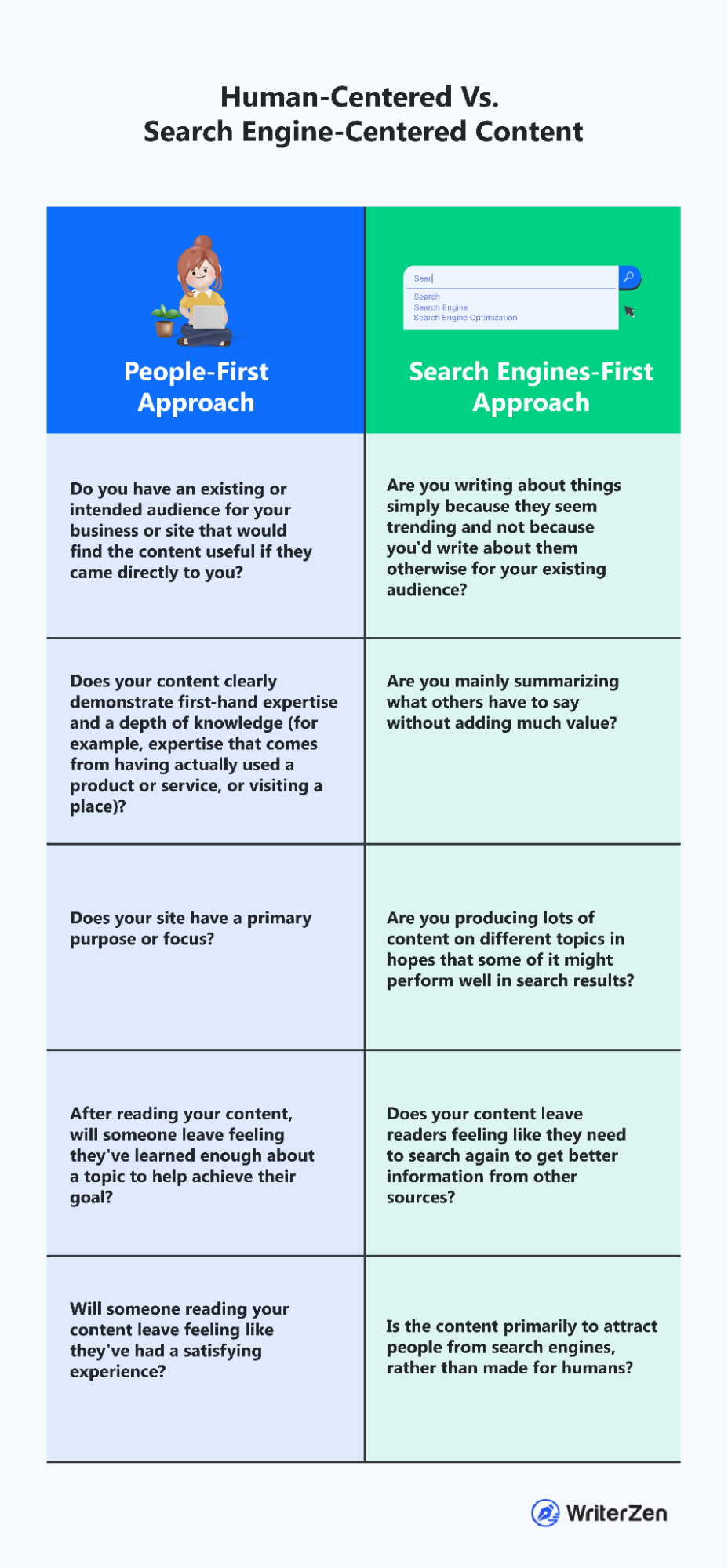
So how do you create this human content?
Here’s the step-by-step approach we use at WriterZen.
-
Consult your customer persona to ground yourself in all the mannerisms, needs, and wants of the target audience. This will help you tailor your piece to the language the reader understands
-
Create a content brief & outline where you state the problem the reader is facing, how you hope to provide a solution, and what you hope to achieve. You can build your outline directly in WriterZen’s Content Creator and have access to the different questions.
People Also Ask Questions from Google: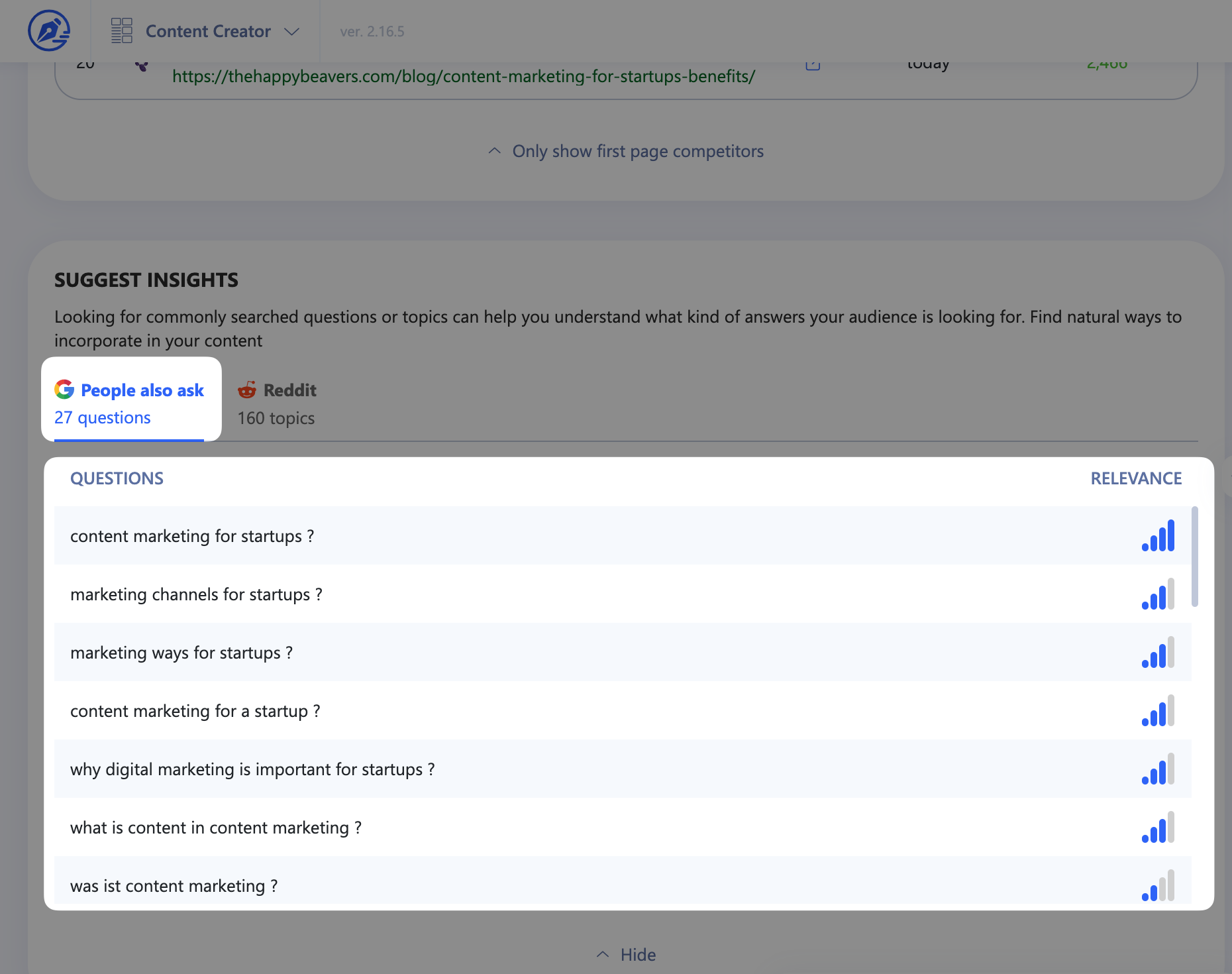
And even queries from Reddit:
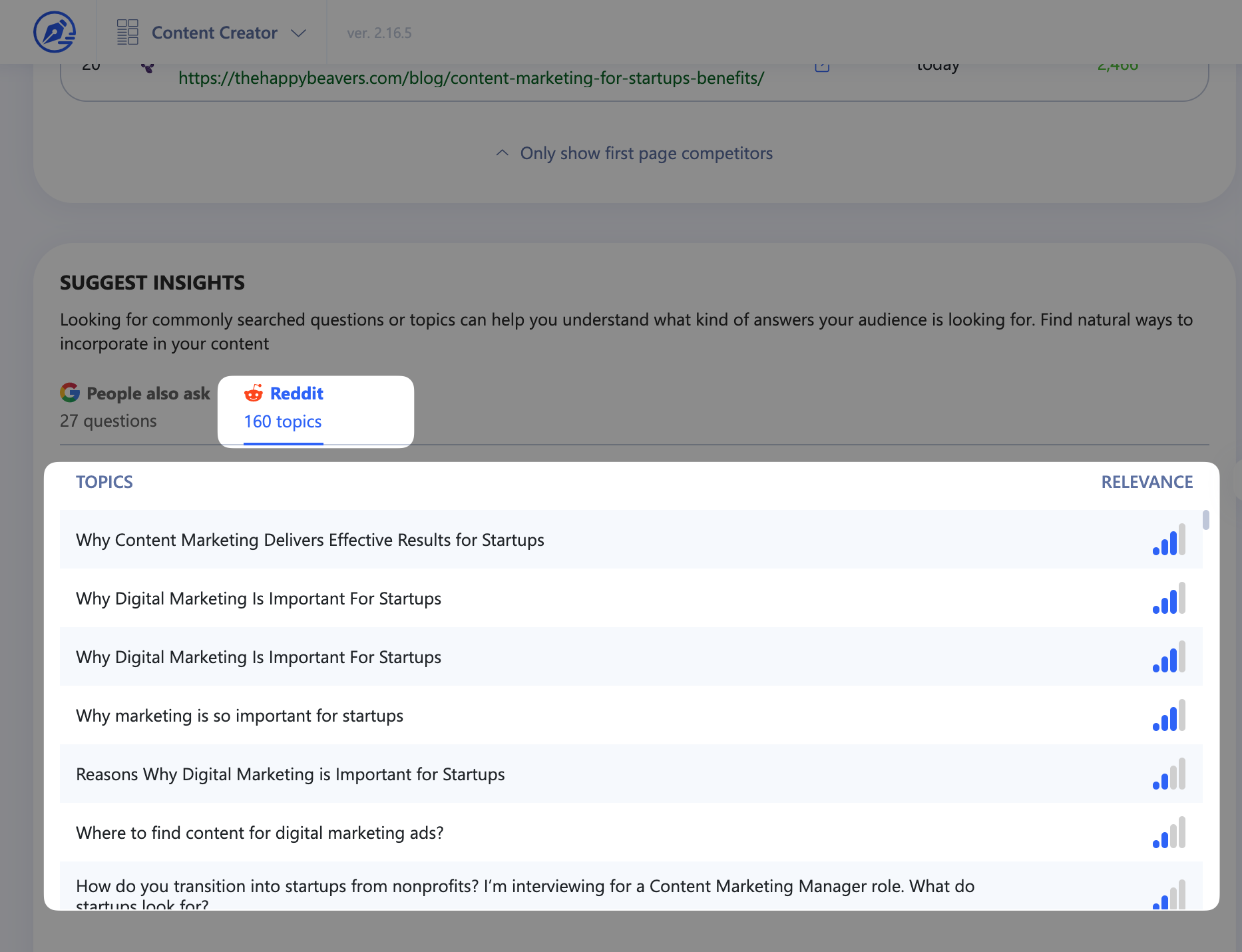
You can also toggle the ‘SERP view’ button at the bottom of your screen to easily see the ranking articles’ outlines and other basic information. Then click on the parts of their outlines you want to emulate, and it will appear on your screen. This will help you easily build your outline:
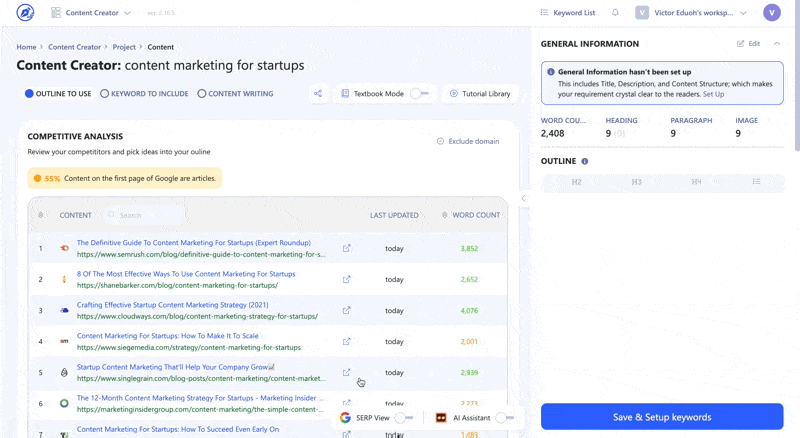
-
Next, come up with a different angle to approach your content. You can start by analyzing the top 20 SERP results to see what others have written and explore how to make yours unique.
-
Do some research to gather relevant data and information.
-
Don’t end your research with a Google search. Speak to some Subject-Matter Experts (SMEs) to get real-life insight into the topic.
-
Then write conversationally, and ensure you answer all the reader’s questions identified in your brief.
-
After writing and editing, optimize for search engines. When optimizing, don’t stuff keywords. Remember, the goal is for the piece to sound natural. Not to worry, Google will understand (and reward) your natural piece.
Sarah McDowell, the SEO Geek, expressed similar sentiments:
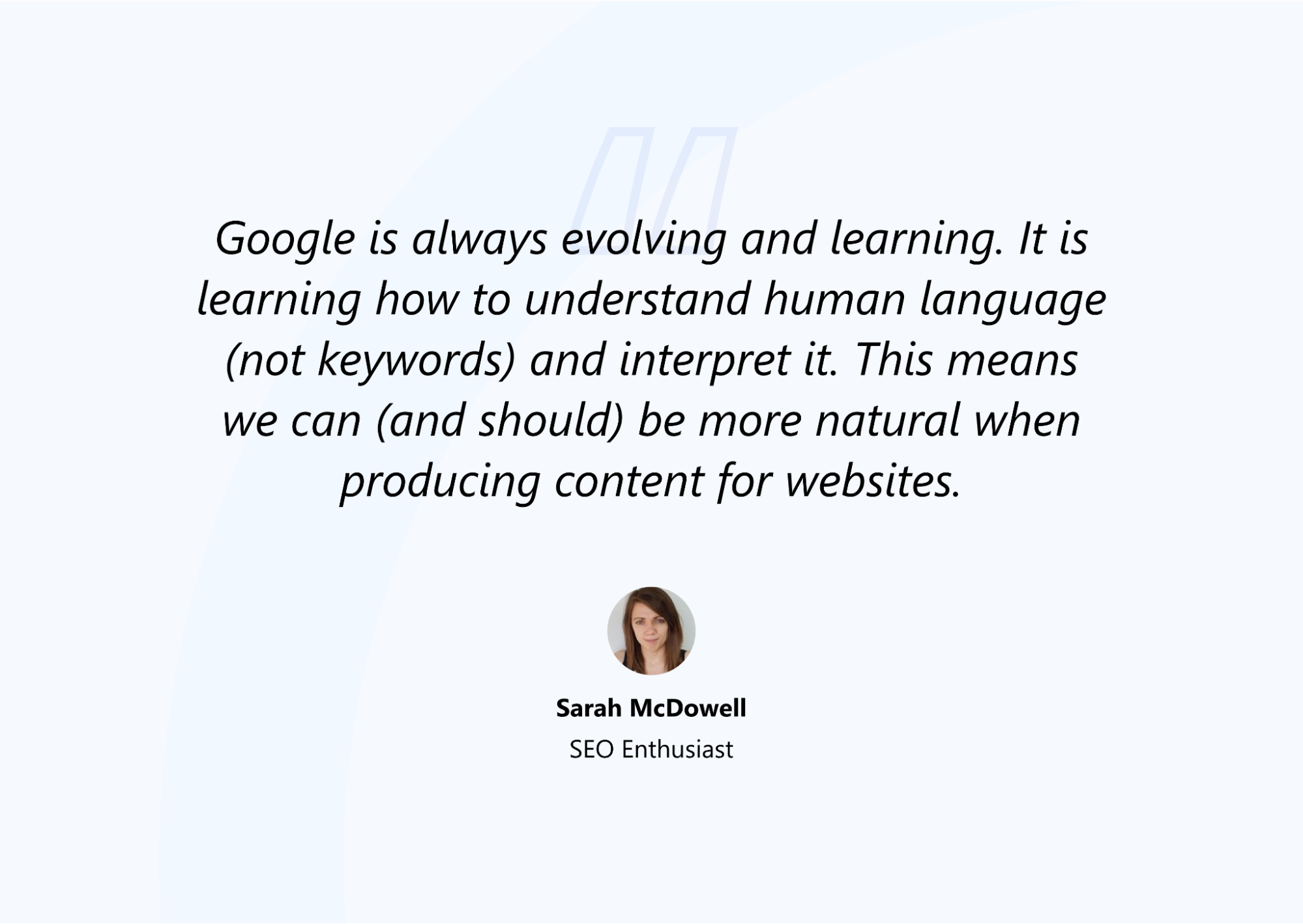
You can use WriterZen to optimize without losing the human touch in your piece. The tool scores your content on an SEO level and points out what you need to do to improve your score:
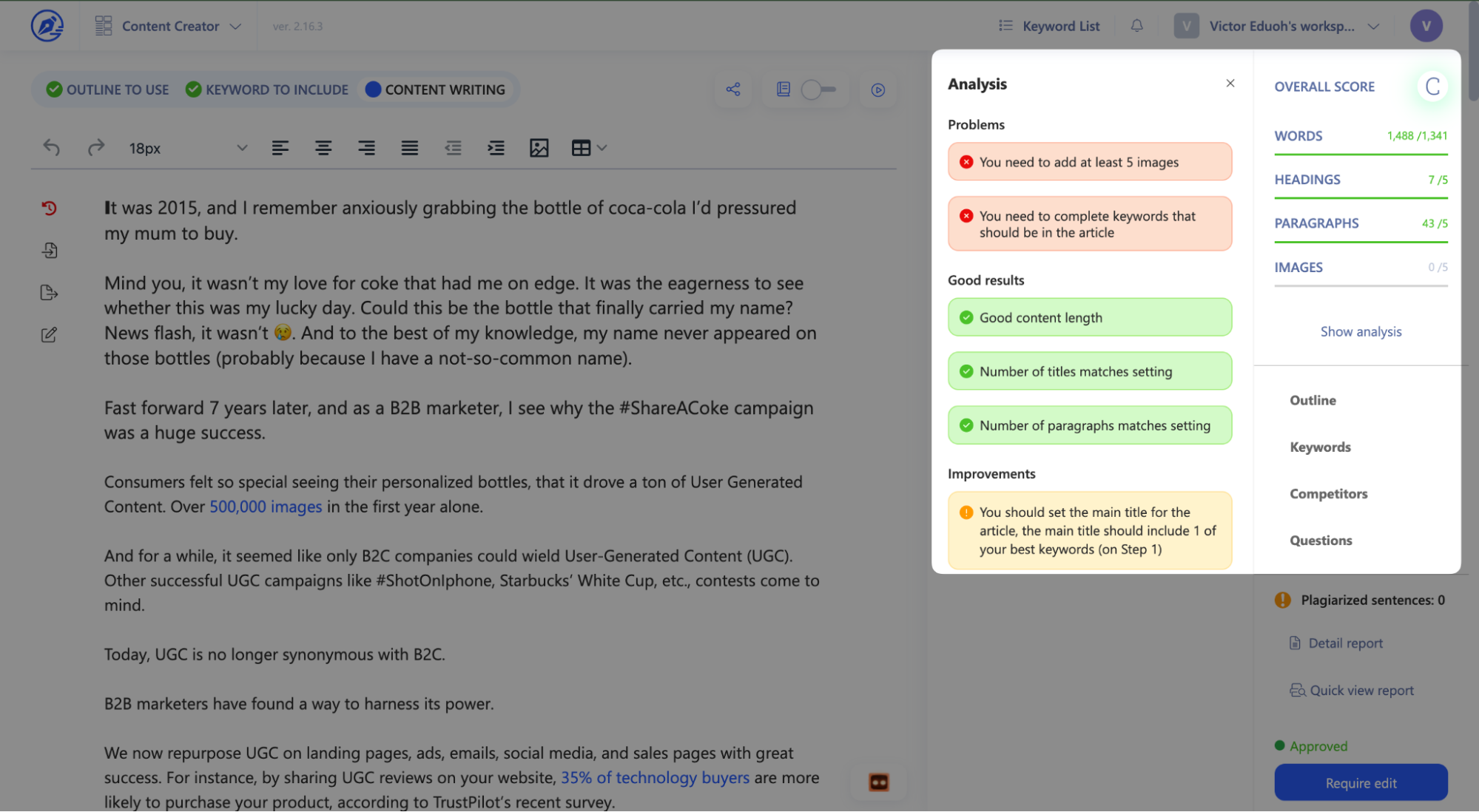
See what a user had to say about this feature:
We’ve seen how to create human content. How about the fundamentals of SEO? What are the things you need to keep in mind?
How To Go Back To SEO Basics
In a Forbes piece, Damon Burton, Founder of SEO National wrote:
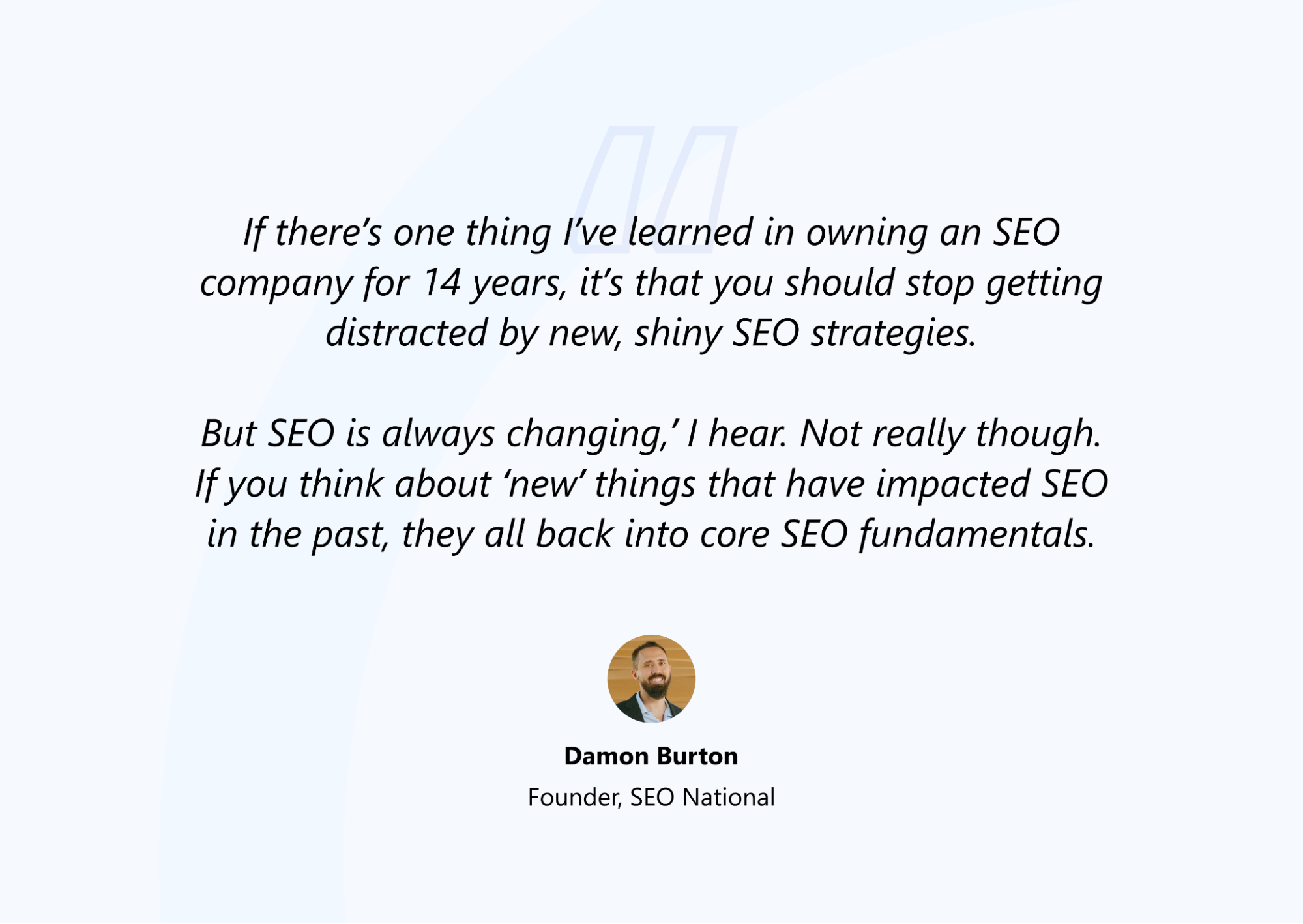
His advice coincides with what we stated earlier. Knowing the SEO basics is enough to help you earn Google’s trust, leading to a better ranking. These fundamentals include:
The Quality Test: E-A-T
Expertise, Authoritativeness, and Trustworthiness (E-A-T) is an important and basic SEO principle.
It states that every content you publish on your website has to be written by an expert. Also, the author, content itself, and website must be authoritative and trustworthy. This ensures that only quality and accurate information is provided to searchers.
Even though E-A-T is not directly tied to ranking, creating content that ticks those boxes could help you maintain higher rankings despite algorithmic changes. This is because Google’s ‘search quality raters’ are more likely to vote E-A-T abiding pieces as better, which goes a long way in determining what stays and what goes during an update.
Site Structure
Site structure is one important yet underrated SEO factor. It can make or break your traffic and rankings.
A good site architecture should provide a great user experience and be accessible to Google for crawlability and indexing purposes. Internal linking, site speed & performance, and URL structure all contribute to the organization of a website.
As your website grows, ensure it is still properly structured. This piece by Databox is a great resource for learning about site structuring.
Keywords
This one is a no-brainer.
Keywords and SEO are two peas in a pod. Keyword research has always been and is still relevant. It might not be the only factor in ranking, but its role cannot be excused.
For every piece you create, you should target a primary keyword. Our Keyword Explorer tool comes in handy here. It provides tons of related keywords, trends over time, and search volumes. You can even find the keyword clusters. Just select and cluster the desired keywords:
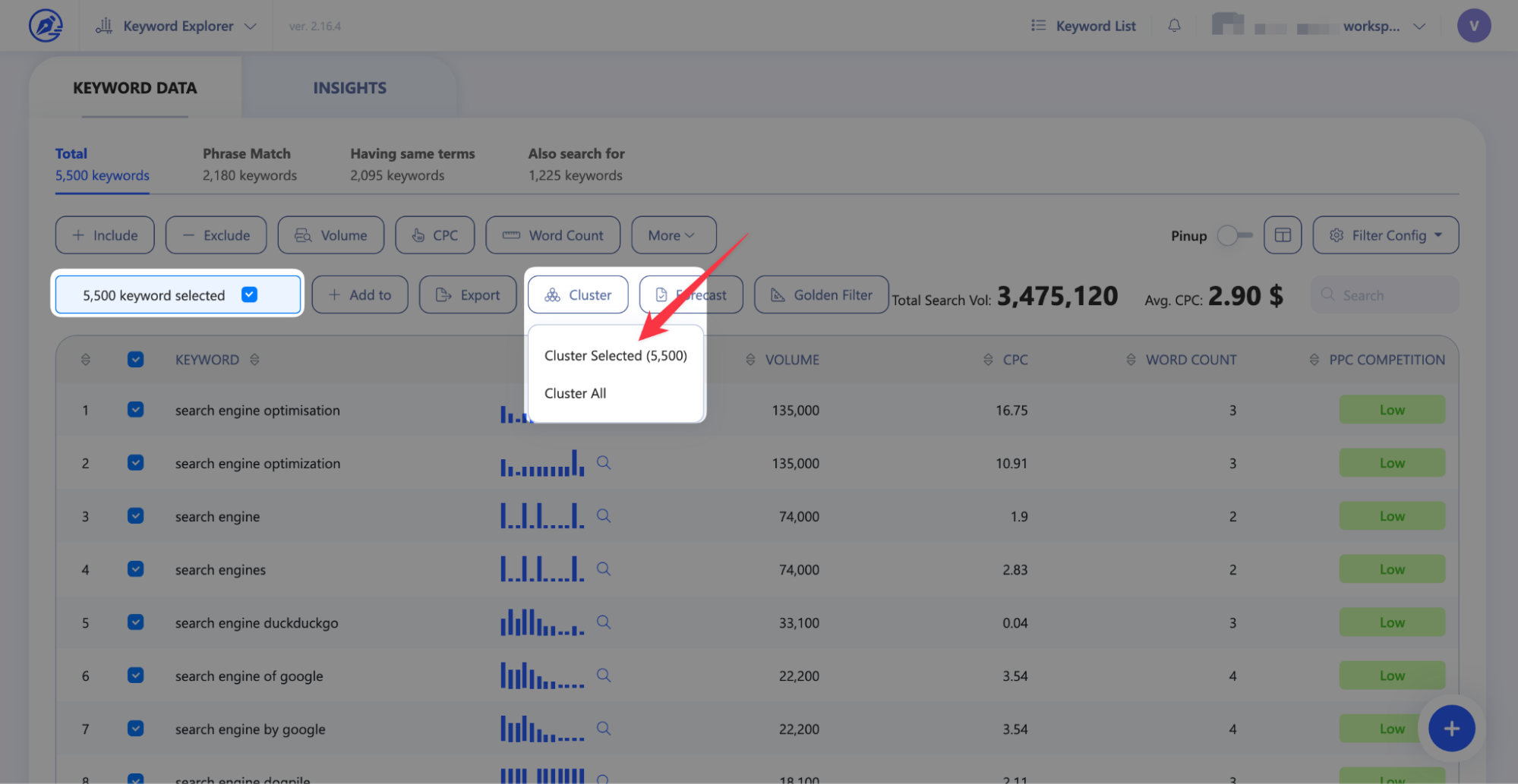
Then comb through the data and pick the most relevant keyword for your content goals:
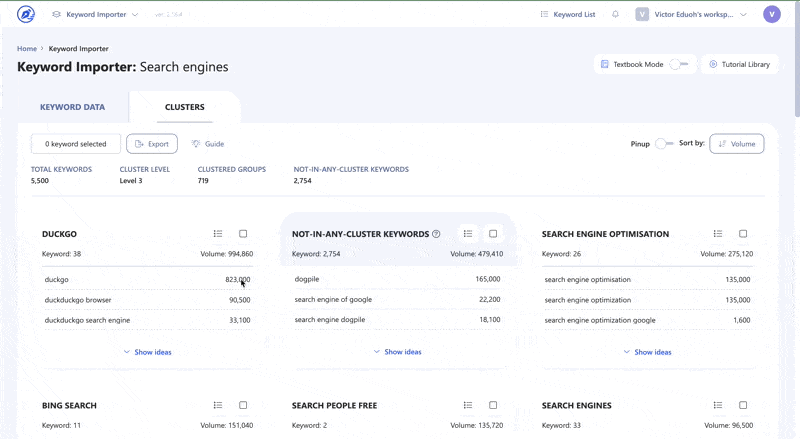
Backlinks
Although pages can still rank without having a ton of backlinks these days, it is still a basic SEO content strategy. For one, it signals trust. As Stewart D, Co-Founder and Chief Strategist at Linkbuilder wrote:
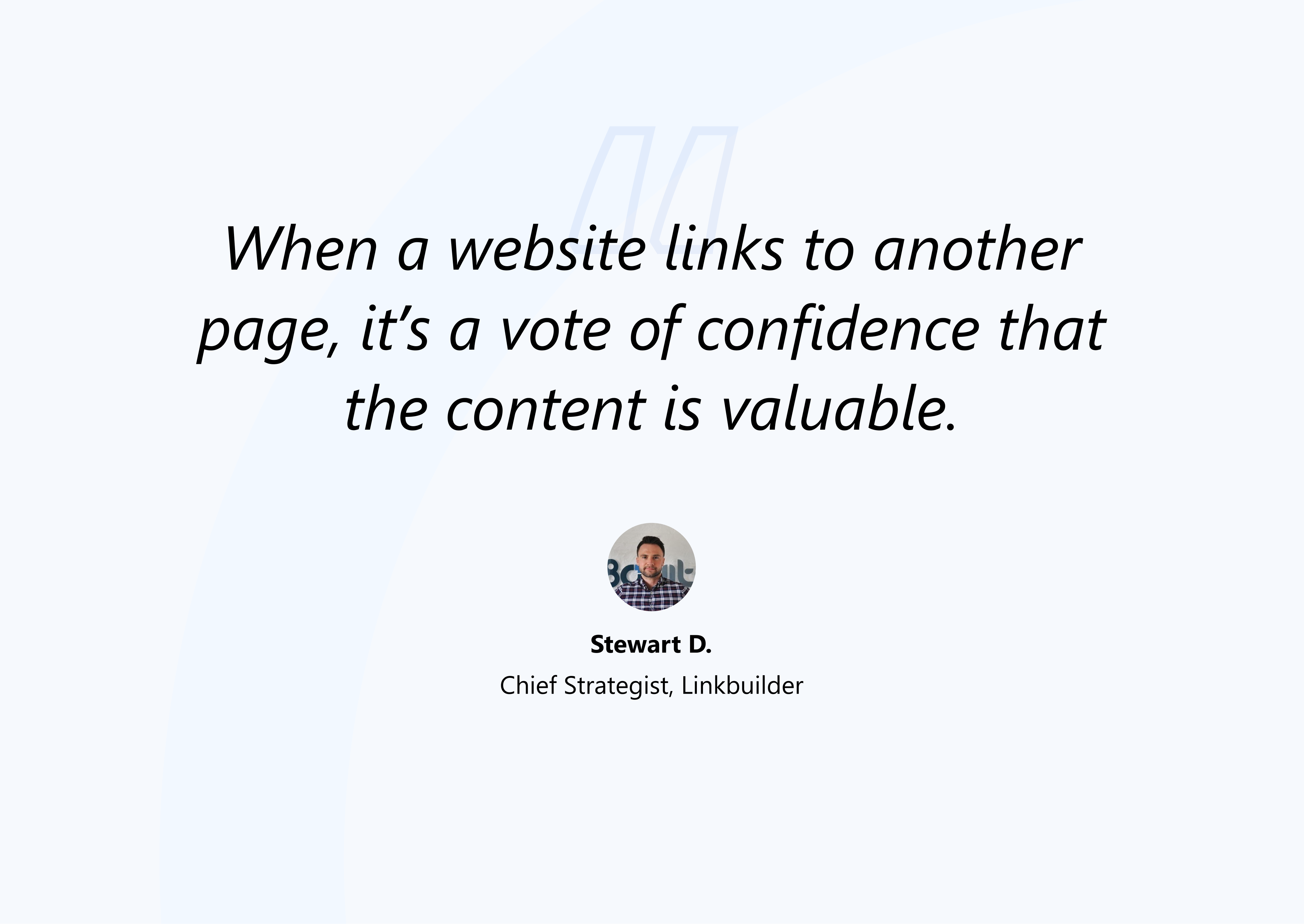
It also generates more organic traffic for your content and increases brand exposure. The takeaway is you should focus on investing in quality and shareable content that will attract backlinks.
No Plagiarism
This relates to the ‘going back to human’ point. Google hates duplicate content and penalizes defaulters.
Every piece of content you put out must be original, not regurgitated. Before you hit publish, you need to check for plagiarism. WriterZen has a Plagiarism Checker to help you detect duplicates:
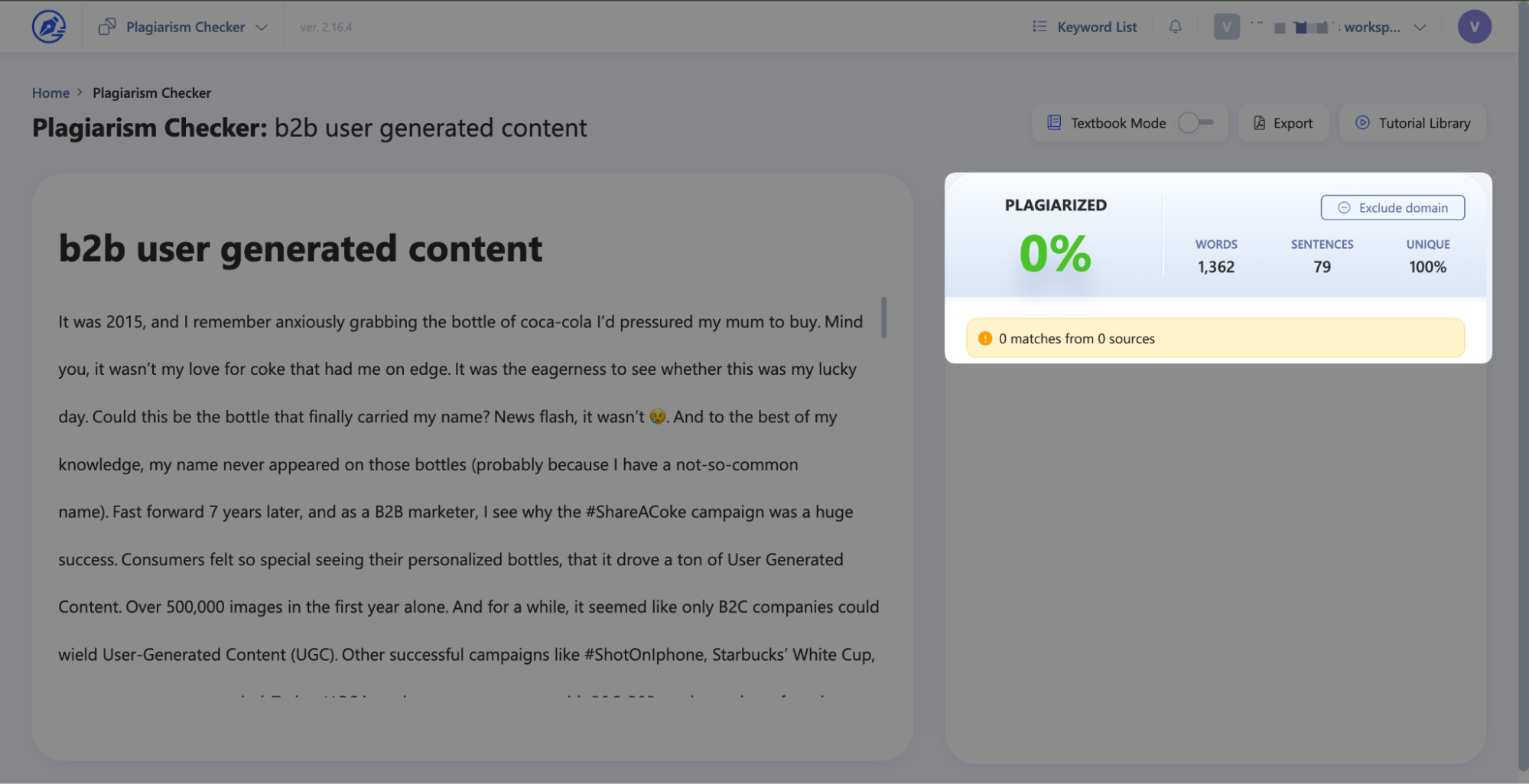
As a customer gushed, it ensures your content is ‘100% original’:
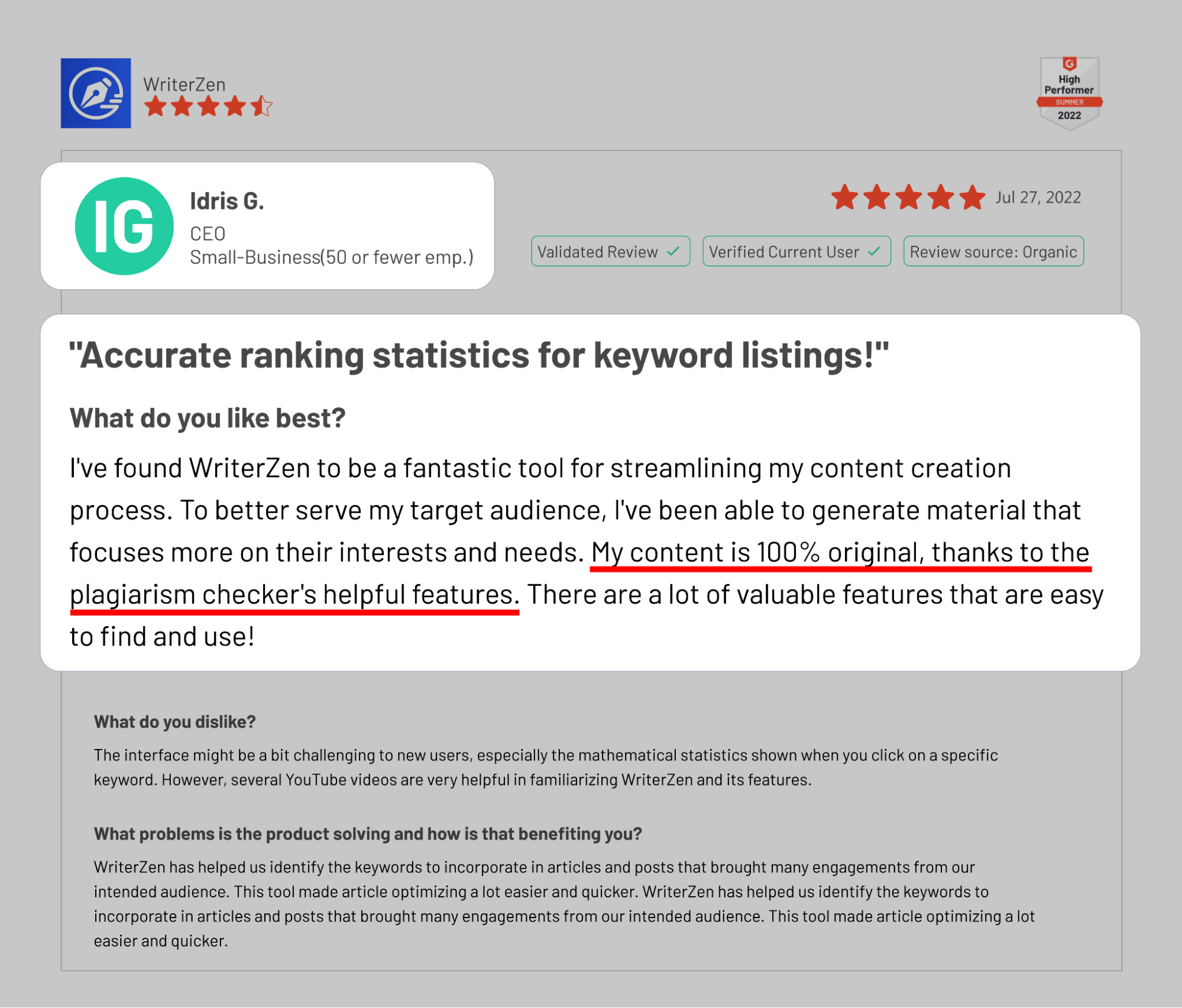
Want to learn more about SEO? Check out WriterZen’s Academy. It’s a vast library filled with free practical resources on SEO from experts.
Google Isn’t The Enemy
Google is a useful demand-capturing tool, even ahead of social media. Data shows Google drives 8 times more traffic than all social media networks combined.
Therefore, it’s not healthy to see them as the enemy. They are essential to the growth of your business.
But to benefit from the search engine, you have to follow their rules. This includes creating human-centered content and following white-hat SEO principles.


